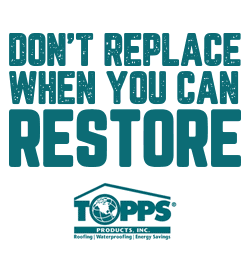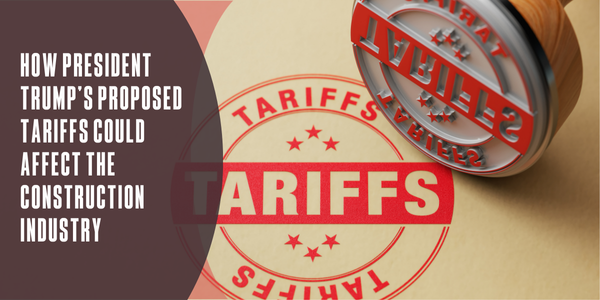UP TO THE MINUTE
The FCC’s new telemarketing consent rule: How to comply
January 15, 2025 at 10:00 a.m.By Trent Cotney, Adams and Reese.
The new rule is scheduled to take effect on January 27, 2025. However, the Trump administration may attempt to reverse it at some point. Despite this uncertainty, businesses should prepare to follow its stipulations.
On January 27, 2025, the Federal Communications Commission (FCC) will enact its new “1:1” consent rule for telemarketing texts and robocalls. This significant change will reshape how businesses obtain consumer consent for marketing messages. Designed to protect consumers, the Final Rule closes the “Lead Generator Loophole,” which previously allowed businesses to share consumer consent across multiple partners. While the rule aims to curb unwanted communications, it introduces new challenges for companies reliant on telemarketing or collaborative marketing initiatives.
Here’s what you need to know as you prepare for this regulatory shift.
Understanding the new rule
The 1:1 consent rule requires businesses to secure separate, written consent from consumers for each and every company sending marketing texts or robocalls. Previously, businesses could get such consent through a single form or hyperlink listing multiple “partner” companies, enabling broad sharing of consumer contact information.
However, under the new rule, such practices are prohibited. Consent must now be granted explicitly for each company, and any marketing communications must directly relate to the consumer’s initial interaction with that specific business. For instance, if your business is part of a co-branded promotion, you cannot send marketing messages unless customers have expressly agreed to receive messages from your company, even if the organizer obtained consent for the broader campaign.
Adapting to new engagement strategies
This rule change will impact businesses that rely heavily on partnerships, referral marketing, or lead generation services. However, it also presents an opportunity to strengthen consumer trust and improve engagement through more targeted communications.
Consider these objectives for positive outcomes:
- Building direct consumer relationships: Companies must focus on developing direct connections with consumers to obtain consent. This process may require greater investment in websites, email campaigns, or in-store signups to capture consumer information firsthand.
- Promoting transparency: The rule requires “clear and conspicuous” consent language. Businesses that are upfront about their marketing practices can foster trust and build stronger customer relationships.
- Enhancing message relevance: By ensuring consent is specific to each business, marketing messages are more likely to resonate with recipients, potentially boosting engagement rates and reducing complaints or opt-outs.
Steps to compliance
To comply with the 1:1 consent rule, businesses should take the following actions:
- Reassess lead generation strategies: If you depend on third-party lead generators, verify that they comply with the new guidelines. Leads collected without proper 1:1 consent cannot be used for marketing purposes. For collaborative campaigns, ensure that each partner separately collects consent for their communications. Consumers should also have access to your terms and privacy policy before opting in.
- Keep track of partnerships: If you collaborate with other companies, confirm that their consent practices align with the 1:1 standard. Update contracts or agreements to reflect these requirements and mitigate compliance risks.
- Revise consent forms: Review all existing consent forms and make necessary adjustments to meet the new standards:
- Clearly state the type of messages consumers can expect to receive.
- Prominently include your business name to avoid confusion.
- List all versions of your company names if you operate under various iterations. Allow consumers to opt in for messaging from all or select brands.
- Use electronic methods such as checkboxes, one-time passcodes, or “Reply YES” options to confirm consent.
- Audit existing contact lists: Identify customers whose contact information was obtained under outdated consent practices. To comply with the new rule, you must a) re-obtain valid consent and b) remove contacts who fail to provide updated consent from your marketing lists.
- Ensure do-not-contact compliance: Strictly adhere to the National Do Not Call Registry and honor all revocations of consent. Under the new rule, marketing texts are treated the same as calls under the Telephone Consumer Protection Act (TCPA), making compliance even more critical.
- Be clear with customers: Be transparent regarding how you will use consumer consent, and take the time to emphasize the benefits of receiving targeted, relevant messages. Clear communication can build trust and encourage customers to opt in.
- Educate your staff: Train your employees about the new requirements to ensure compliance at every level of customer interaction. This process can reduce mistakes and improve customer relations.
Final thoughts
The new rule is scheduled to take effect on January 27, 2025. However, the Trump administration may attempt to reverse it at some point. Despite this uncertainty, businesses should prepare to follow its stipulations.
The information contained in this article is for general educational information only. This information does not constitute legal advice, is not intended to constitute legal advice, nor should it be relied upon as legal advice for your specific factual pattern or situation.
About Trent Cotney
Trent Cotney is a partner and Construction Practice Group Leader at the law firm of Adams and Reese LLP and NRCA General Counsel. You can reach him by emailing trent.cotney@arlaw.com or calling 866.303.5868.




















Comments
Leave a Reply
Have an account? Login to leave a comment!
Sign In